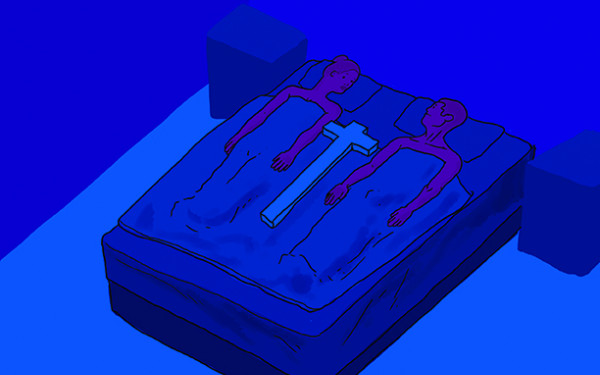Freethinkers on Campus
Concordia Secularists Hope to Spread Reason
Let’s face it: religion is on the decline in Western culture. A growing number of people—particularly in younger demographics—need more than faith and the threat of hellfire to base their life decisions on.
In a time where the Internet provides a plethora of information at our fingertips, people who may have been restricted to the belief systems of their families, churches and schools now have communities and resources to make their own educated decision about how to live their lives.
Besides the changing demographic, secularist, humanist and atheist student groups are becoming more common in North American colleges and universities.
The Freethought and Humanist Club, authorized by the Concordia Student Union in September, is the first secularist student group in Concordia.
With six members so far, Freethought Concordia is just getting started, but is committed to making its voice heard at Concordia.
Their first event, a live screening of the debate between atheist author and journalist Christopher Hitchens and former British Prime Minister Tony Blair, is on Nov. 26.
Reaching out to other student groups and campus organizations, like the Multi-Faith Chaplaincy, Freethought Concordia is hoping for a good turnout of skeptics and believers alike who are open to reasonable discourse on the place of faith in our society and culture.
Many believers, however, seem close-minded to this kind of discourse and their leaders do not seem intent on helping bridge this gap between themselves and the steadily increasing numbers of non-believers.
Pope Benedict XVI made a well-publicized visit to the U.K last September where, in a speech, he remarked on “the sobering lessons of the atheist extremism of the 20th Century.”
He referenced specifically the crimes of Nazi Germany, claiming they wished to “eradicate God from society.”
As thousands protested the Pope’s visit in London, scientist and author of The God Delusion Richard Dawkins gave a speech pointing out that Hitler and much of the Nazi party were in fact Catholics. He read a passage of Mein Kampf where Adolph Hitler calls upon his Catholic faith.
It is also publicly known that some leaders in the Catholic Church commended Hitler and his party’s treatment of the Jews. The Catholic Church did not begin viewing Judaism with tolerance and kindness until well after World War II.
With these facts illuminated, it becomes clear that the church believes they can use allegations against secularism to distract the public from their sex abuse scandal, for which a large group of people in the U.K believed the Pope should have been arrested as soon as he stepped foot outside of his safe haven of the Vatican.
The Pope’s comments stimulated outrage on secularist blogs and on online communities like Reddit.com. News had recently come to light that the U.K is now one of the least religious countries on the planet. It seemed the church’s misguided comments were an insidious attack on an ideology which has been adopted by the majority of the country he was visiting.
As secularism has become a growing trend, organizations encourage people to “come out” as atheists instead of fearing they will be ridiculed.
Most recently, the American Humanist Organization’s campaign highlights unsavory biblical quotes put beside secular humanist quotes in print and television advertisements.
They urge the viewer to “Consider Humanism.”
Thanks to the likes of Richard Dawkins and other authors, scientists, public activists, and organizations, what was once taboo has become a healthy part of rational discourse in Western democratic societies.
This is what the Catholic Church calls a threat to morality. Many, instead, call it progress.
This article originally appeared in Volume 31, Issue 14, published November 16, 2010.

__588_760_90.jpg)


__600_375_90_s_c1.jpg)
_600_375_90_s_c1.jpg)

